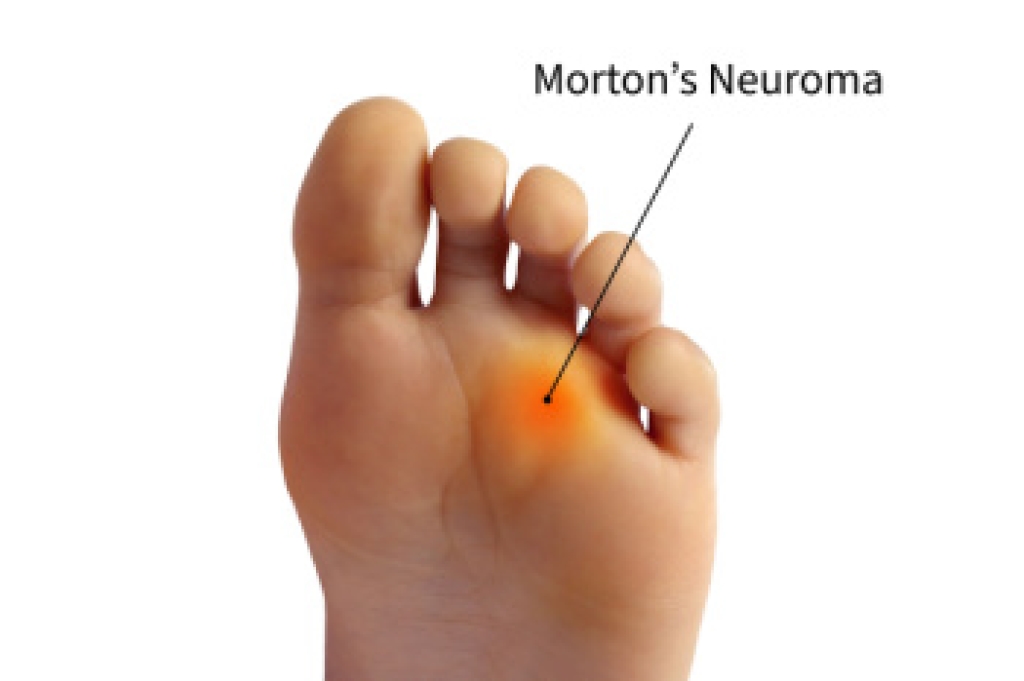
Morton’s neuroma is a painful condition involving thickened nerve tissue between the toes, often caused by pressure or irritation. Non surgical care focuses on reducing stress to the area and relieving nerve irritation. Switching to wider shoes with soft soles can reduce compression on the forefoot. Custom orthotics may help by redistributing pressure and supporting foot structure. Padding between the toes can also ease discomfort by keeping them in a more natural position. Anti-inflammatory medications may reduce swelling and improve comfort. In some cases, corticosteroid injections are used to calm nerve inflammation. Activity modification, including avoiding high heels or high-impact exercise, may also prevent symptoms from worsening. If nerve pain between the toes continues to interfere with daily life, it is suggested that you see a podiatrist for a diagnosis and a personalized treatment plan.
Morton’s neuroma is a very uncomfortable condition to live with. If you think you have Morton’s neuroma, contact one of our doctors of New England Foot & Ankle . Our doctors will attend to all of your foot care needs and answer any of your related questions.
Morton’s Neuroma
Morton's neuroma is a painful foot condition that commonly affects the areas between the second and third or third and fourth toe, although other areas of the foot are also susceptible. Morton’s neuroma is caused by an inflamed nerve in the foot that is being squeezed and aggravated by surrounding bones.
What Increases the Chances of Having Morton’s Neuroma?
- Ill-fitting high heels or shoes that add pressure to the toe or foot
- Jogging, running or any sport that involves constant impact to the foot
- Flat feet, bunions, and any other foot deformities
Morton’s neuroma is a very treatable condition. Orthotics and shoe inserts can often be used to alleviate the pain on the forefront of the feet. In more severe cases, corticosteroids can also be prescribed. In order to figure out the best treatment for your neuroma, it’s recommended to seek the care of a podiatrist who can diagnose your condition and provide different treatment options.
If you have any questions, please feel free to contact our offices located in Wakefield, MA, Nashua and Derry, NH . We offer the newest diagnostic and treatment technologies for all your foot care needs.
